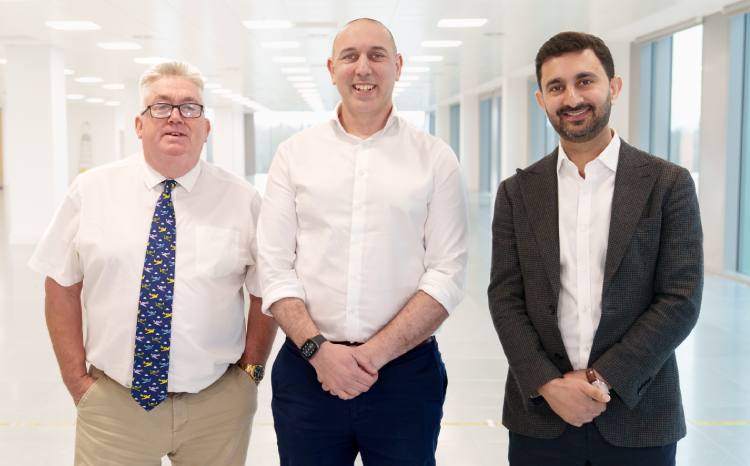Enter the CCG
- 16 October 2013

In most areas of industry, it is easy to monitor and reward the workforce by using targets: sales targets, efficiency targets and the like.
But this can’t always be translated into healthcare. Although it may be second nature to managers to think of aiming for ‘a 2.5% reduction in referrals’, or ‘a £7.5m saving in referral costs’, it’s not helpful to create clinical targets in this manner.
More to the point, it’s not even ethical. It is a professional offence for a doctor to accept any inducement for referring a specific patient in a particular way (In the past, this was known as ‘fee-splitting’).
I will repeat that: clinicians are forbidden by the GMC from accepting any inducement to refer or not to refer.
Yet, at the same time, we have a clear ethical duty to use the resources of the NHS efficiently, economically and wisely. So how can these two objectives be reconciled?
The finances of chest pain
A hypothetical example will show just how important this could be. A patient presents in surgery at 5 o’clock on a Friday with “a little bit of chest pain”.
After taking the history and conducting an appropriate examination, the doctor concludes that it’s almost certainly musculoskeletal, but there’s still a slight possibility that the patient might have had a myocardial infarction.
If the GP knows that he is near to achieving a bonus payment for reducing unscheduled care, will it affect his decision as to whether to refer the patient in front of him? (What if £3,000 for the practice were riding on this?)
The bottom line is this: it is neither logical nor appropriate for anyone to imagine that a simplistic target for a reduction in referrals can have any ethical validity.
Indeed, if a GP is doing his or her job properly then all their referrals will be essential, and there is nothing they can do to reduce their number.
You might think that as a result clinical commissioning groups can’t exert any influence over referral costs – but you’d be wrong. Here’s my suggestion.
How to get cost-effective referrals — properly!
If you think about it, ‘reducing referrals by a certain percentage or a total amount’ is actually a poor proxy for the real target, which is ‘to ensure that all referrals are appropriate’.
Although in the past many people have used ‘low referral numbers’ or ‘low referral costs’ as a marker for ‘referral quality’, we have known for 30 years that there is no direct relationship between the two.
Indeed, the latest research suggests that higher quality doctors tend to have a slightly higher referral rate than the average. So how can the CCG target unnecessary referrals?
My plan to control referral costs is therefore to control the quality of referrals; the quantity – and cost – will then automatically self-adjust.
Those clinicians who are referring unnecessarily will be shown where and how they can change their clinical practice, and their level of referrals will automatically change as a consequence.
But how do we increase referral quality? It’s simple: give GPs feedback.
Being a GP is often an isolating experience. Even in big practices, it can be common for clinicians not to see each other during the entire week, outside formal meetings.
Contacts with consultants are often sporadic, especially for GPs whose practices are not situated near a hospital. Often, GPs get very little feedback about the quality of their referrals.
In the past, great emphasis has been placed on GPs meeting in their practices to discuss their own or another practice’s referrals, but in my experience this has been a waste of time.
It has had no effect on our referral rates because we have genuinely all agreed that our individual referrals were appropriate.
But there is a logical flaw in this scheme; such meetings only work to the level of the GP with the greatest experience in that particular area, and as most practices consist of GPs rather than specialists, not much extra input can be achieved.
What GPs really need is feedback from a specialist — to let us know whether our referral was appropriate, and to inform us if there were other things we could have done to control matters ourselves.
Likewise, GPs appreciate confirmation that their knowledge and understanding of less common situations is still best practice.
A simple scoring system…
My plan is to include a simple form with each referral. The receiving consultant or registrar would score each referral on a range of 0-2.
On my system, 2 would mean ‘excellent referral, all necessary prior investigations performed, all relevant GP treatments tried already’; 1 would be ‘good referral, but had you performed X investigation, or used Y treatment, you might have been able to continue looking after this patient yourself’; and 0 would mean ‘this patient should never have come near the hospital’.
The form should enable free text to be added to any referral scoring lower than 2, so the specialist can provide guidance on how and why the referral could have been improved.
Often this may be simply to reassure the GP that they would have been able to look after the patient with complete confidence and safety ‘had they done XYZ’.
Two copies of the form would be returned: the complete form – containing both the score and the advice- would be returned to the GP, personally and privately. The other, containing the scores only, would go to managers at the CCG.
The CCG would then reward practices taking part in this scheme if their average score increased from that of the previous year, or alternatively remained at 1.8 or greater.
Who gains here? Everybody. GPs gain because they are continually being given honest, personalised and private feedback about the quality of their referrals.
The patient gains because there is no chance of the doctor choosing not to refer for mercenary reasons.
The GP is being quietly and continually educated, and also gains financially for taking part in this quality assurance scheme.
And the CCG gains because, as referrals increasingly become more appropriate, they are therefore a more cost-effective use of NHS resources. QED. And crucially, entirely ethical.


Dr John Lockley
Dr John Lockley is clinical lead for informatics at Bedfordshire Clinical Commissioning Group and a part-time GP.




